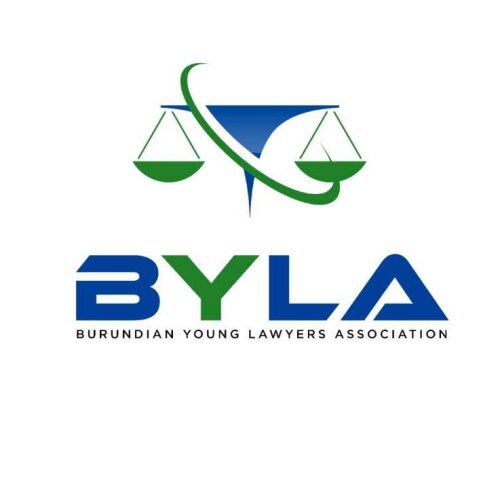Best Project Finance Lawyers in Bujumbura
Share your needs with us, get contacted by law firms.
Free. Takes 2 min.
List of the best lawyers in Bujumbura, Burundi
About Project Finance Law in Bujumbura, Burundi
Project finance in Bujumbura, Burundi refers to the legal and financial structuring of large-scale infrastructure and industrial projects such as energy plants, roads, telecommunications, and mining ventures. This often involves complex contractual arrangements between private entities, government authorities, lenders, and investors. The finance for such projects is usually secured by the project's assets and future cash flows rather than the general assets or creditworthiness of the project sponsors. In recent years, Burundi has seen increased interest from both domestic and international investors seeking to develop critical infrastructure, making project finance law an important and evolving field.
Why You May Need a Lawyer
Working on a project finance deal in Bujumbura, Burundi involves navigating a complex regulatory and contractual landscape. Some of the common scenarios where you might require legal assistance include:
- Structuring deals that involve multiple stakeholders such as banks, government entities, contractors, and suppliers
- Negotiating and drafting loan agreements, security documents, and concession contracts
- Conducting due diligence on land titles, permits, and regulatory approvals
- Understanding and complying with local and international environmental standards
- Managing risks related to foreign investment, currency exchange, and political instability
- Resolving disputes during project implementation or following completion
- Advising on tax implications and incentives for project finance in Burundi
A specialized lawyer can help protect your interests, ensure legal compliance, and facilitate smooth implementation of your project.
Local Laws Overview
In Bujumbura, project finance is influenced by a combination of Burundi's national laws, regional treaties, and sector-specific regulations. Key legal considerations include:
- Ownership and land use: Securing rightful ownership or long-term leases is critical, as land laws in Burundi can be complex.
- Licenses and permits: Infrastructure and resource projects require permits from national and municipal authorities; failure to comply can halt a project.
- Public-Private Partnership (PPP) frameworks: Burundi has adopted PPP laws to facilitate collaboration between public entities and the private sector, offering structured frameworks and dispute mechanisms.
- Securities and collateral: Lenders generally require enforceable security interests in project assets that must be registered according to Burundian law.
- Foreign investment regulations: There are rules governing foreign investment, repatriation of profits, and requirements for local content.
- Taxation: Projects in Burundi may benefit from investment incentives, but understanding applicable tax laws and double taxation treaties is essential for financial planning.
- Environmental and social laws: Compliance with environmental impact assessment requirements and community consultations is mandatory for most large projects.
- Dispute resolution: Contracts often specify arbitration as the preferred dispute resolution mechanism, and local courts enforce arbitration awards.
Consulting with legal experts familiar with the Burundian legal system is crucial to navigate these laws effectively.
Frequently Asked Questions
What is project finance and how is it different from traditional financing?
Project finance involves raising funds based on the project's expected cash flows, with limited or no recourse to the assets of the project's sponsors. Traditional financing generally relies on the borrower's existing assets and creditworthiness. In project finance, the assets and revenues of the project itself are used as collateral.
What types of projects commonly use project finance in Bujumbura?
Commonly, large-scale infrastructure such as energy generation plants, water and sanitation facilities, roads, telecommunications networks, ports, and mining operations are funded through project finance structures.
What legal structures are used for project finance in Burundi?
Project finance is usually facilitated through special purpose vehicles (SPVs), which are legal entities created solely to own and operate the project. This helps isolate project risks and assets from the sponsors.
Do I need government approval for my project?
Most large projects require some form of government approval, ranging from environmental licenses to concession agreements, depending on the sector and scale of the project.
What risks should I be aware of in project finance transactions in Burundi?
Risks may include regulatory changes, political instability, currency fluctuations, difficulties in land acquisition, and delays in obtaining permits. Proper legal structuring and insurance can help mitigate these risks.
How are disputes typically resolved in project finance deals?
Many project finance contracts specify international arbitration or local arbitration as the preferred method of dispute resolution. Burundi is a signatory to the New York Convention, enabling enforcement of foreign arbitration awards.
Can foreign investors participate in project finance in Burundi?
Yes, foreign investors can participate, subject to the country's investment regulations, sector-specific restrictions, and requirements concerning local content and capital controls.
What incentives does Burundi provide for project finance investments?
The Burundian government offers various investment incentives, including tax exemptions, customs duty reductions, and legal guarantees for repatriation of capital and profits, especially for projects considered strategically important.
How is repayment to lenders secured in a project finance transaction?
Lenders rely on the project's assets, rights, and future cash flows as collateral. Legal charges or mortgages on these assets are used to secure repayment.
What role does due diligence play in project finance?
Due diligence is essential to identify legal, financial, and technical risks associated with the project. It includes reviewing land rights, regulatory compliance, contractual obligations, and environmental impacts.
Additional Resources
If you are seeking further information or support related to project finance in Bujumbura, Burundi, consider these resources:
- Ministry of Finance, Budget and Economic Planning - The primary regulator for financial and economic projects in Burundi
- Investment Promotion Agency of Burundi (API) - Provides guidance on incentives, registration, and legal requirements for investors
- Burundi Revenue Authority (OBR) - Offers information on taxation and customs for investments
- East African Community (EAC) - Regional legal frameworks that may impact cross-border infrastructure projects
- Local Chambers of Commerce and Industry - Can help connect you with legal professionals and business advisors
- Law firms in Bujumbura with expertise in project finance, infrastructure, and foreign investment
Next Steps
If you need legal assistance for a project finance arrangement in Bujumbura, Burundi, consider the following steps:
- Clearly define your project's objectives, stakeholders, and financial needs
- Gather all relevant documentation, including project plans, budgets, and any prior agreements
- Consult a lawyer with expertise in project finance and local regulations at the earliest opportunity
- Work with your lawyer to conduct due diligence, identify legal risks, and structure the appropriate legal entities
- Prepare and negotiate necessary contracts, including loan agreements, security documents, and partnership arrangements
- Ensure compliance with all local laws by securing permits, licenses, and approvals before implementation
- Monitor project progress and maintain regular contact with your legal advisor to address new challenges as they arise
Taking a proactive, informed approach with the help of a qualified legal professional can significantly improve the success and sustainability of your project finance venture in Bujumbura, Burundi.
Lawzana helps you find the best lawyers and law firms in Bujumbura through a curated and pre-screened list of qualified legal professionals. Our platform offers rankings and detailed profiles of attorneys and law firms, allowing you to compare based on practice areas, including Project Finance, experience, and client feedback.
Each profile includes a description of the firm's areas of practice, client reviews, team members and partners, year of establishment, spoken languages, office locations, contact information, social media presence, and any published articles or resources. Most firms on our platform speak English and are experienced in both local and international legal matters.
Get a quote from top-rated law firms in Bujumbura, Burundi — quickly, securely, and without unnecessary hassle.
Disclaimer:
The information provided on this page is for general informational purposes only and does not constitute legal advice. While we strive to ensure the accuracy and relevance of the content, legal information may change over time, and interpretations of the law can vary. You should always consult with a qualified legal professional for advice specific to your situation.
We disclaim all liability for actions taken or not taken based on the content of this page. If you believe any information is incorrect or outdated, please contact us, and we will review and update it where appropriate.













